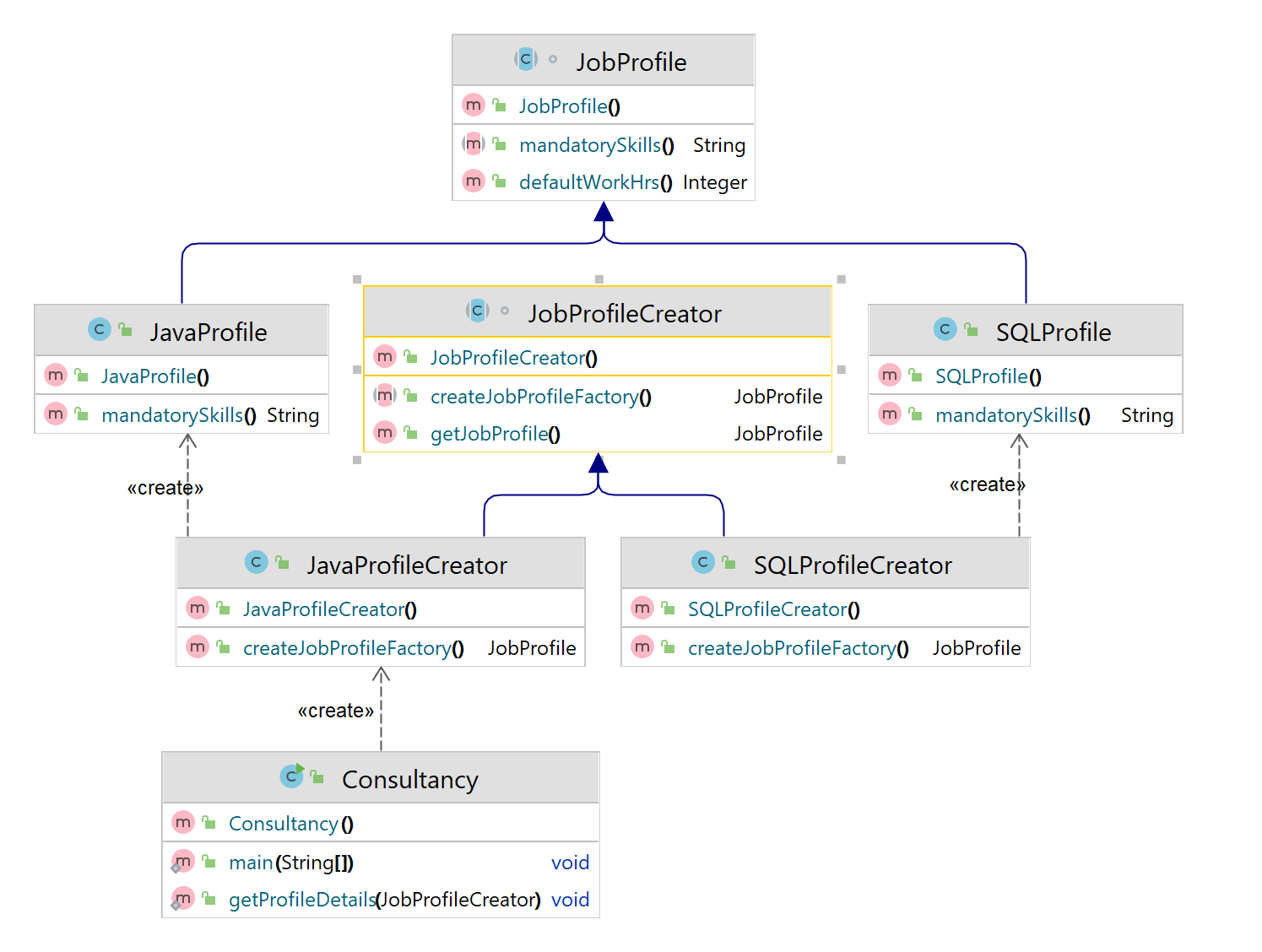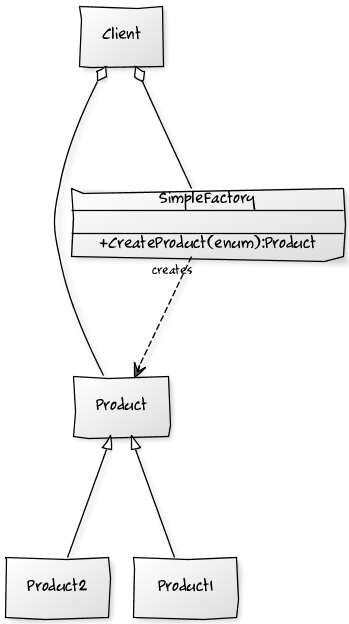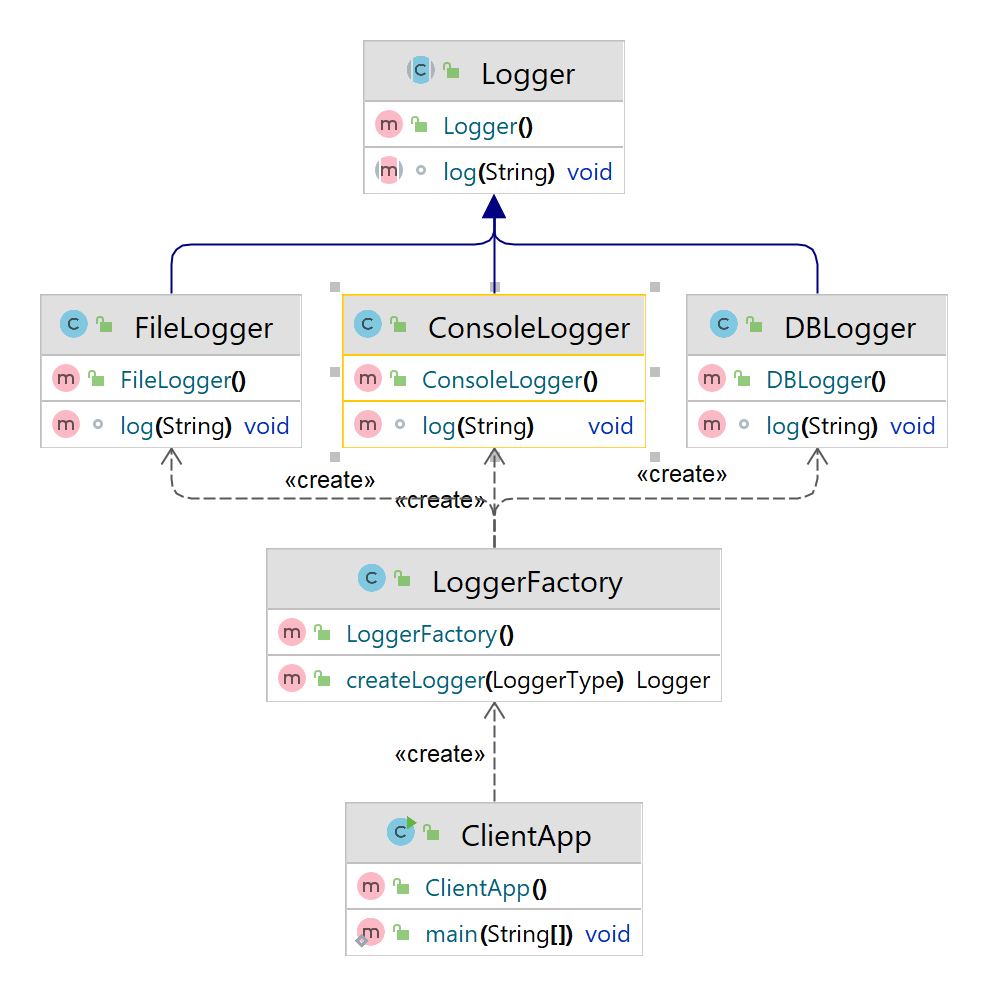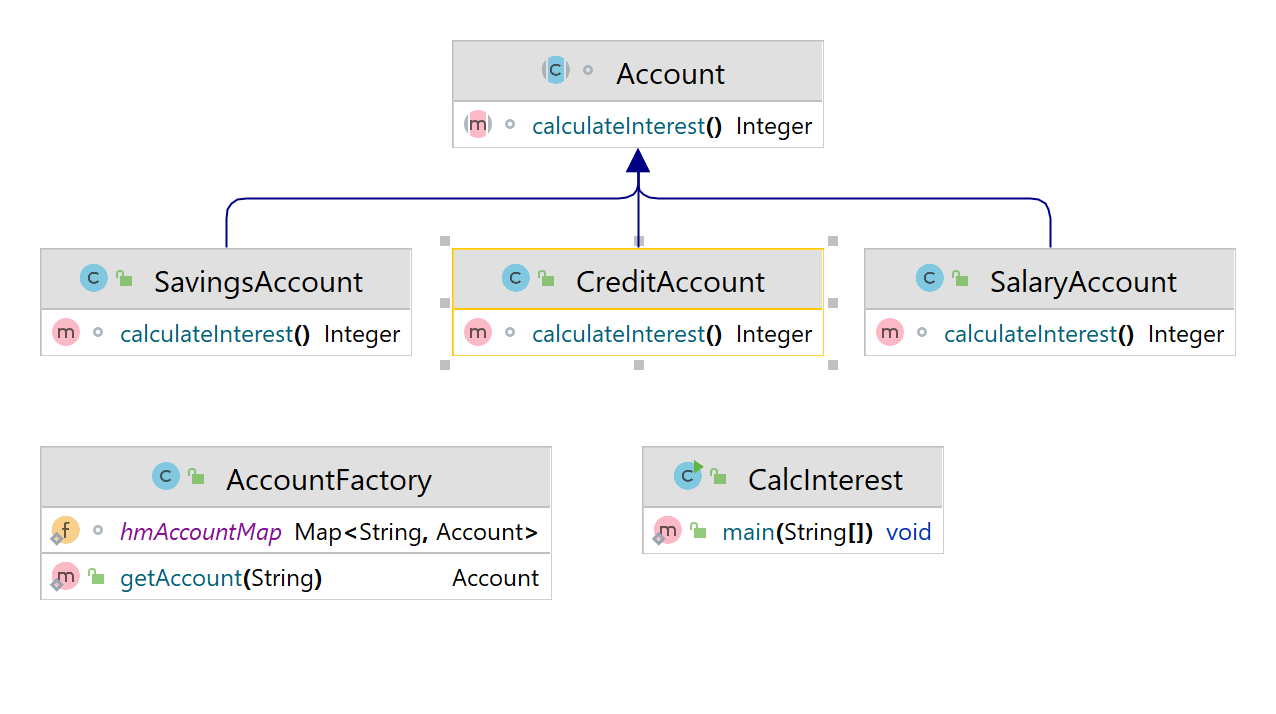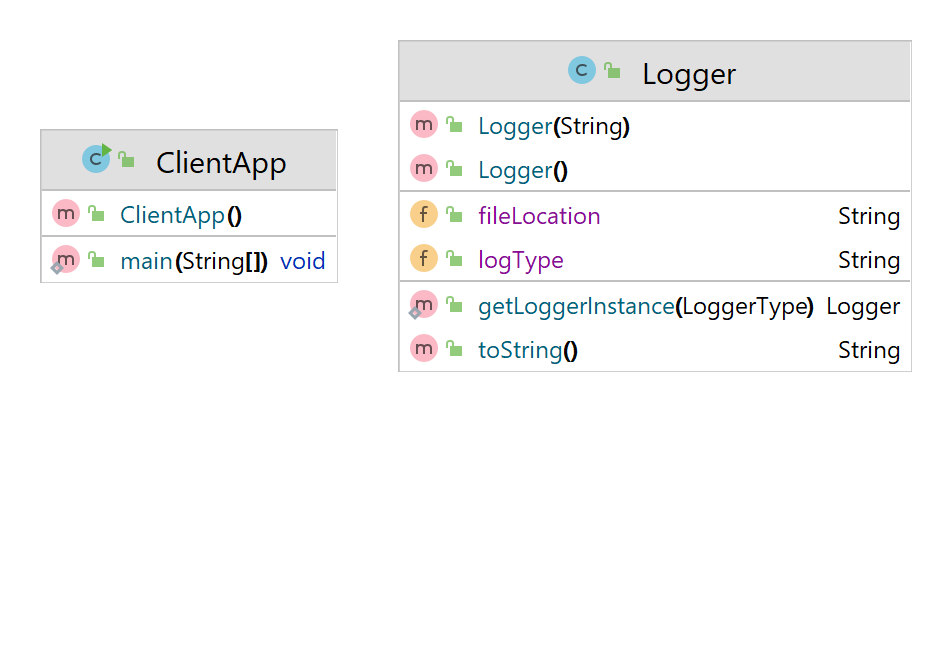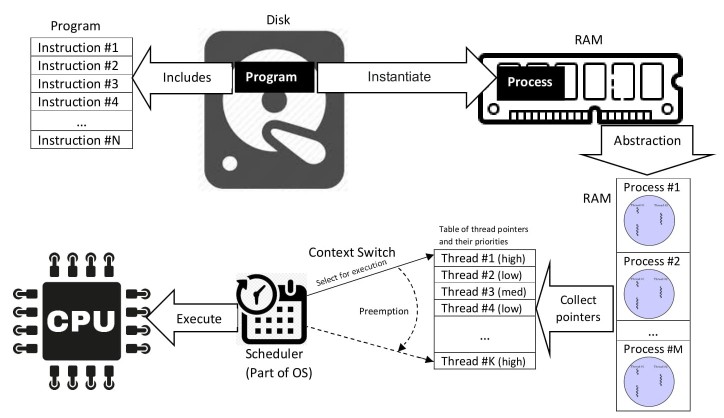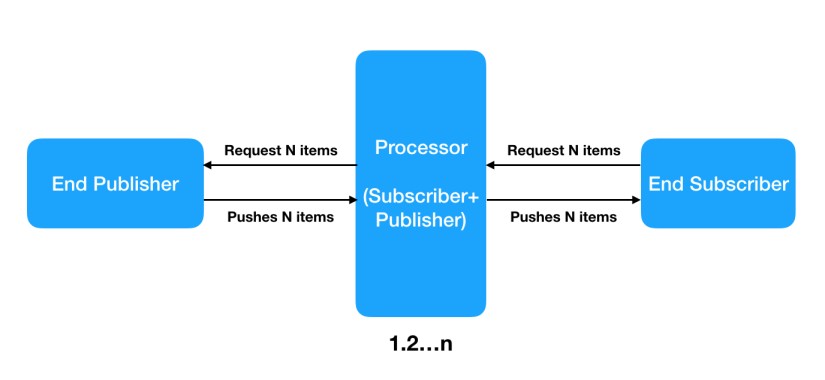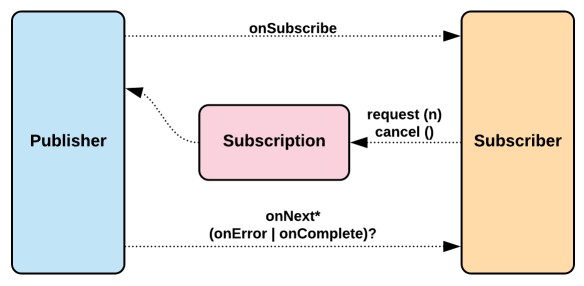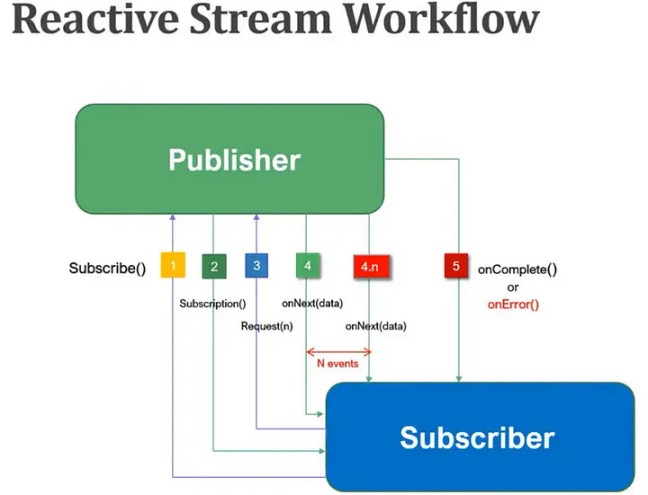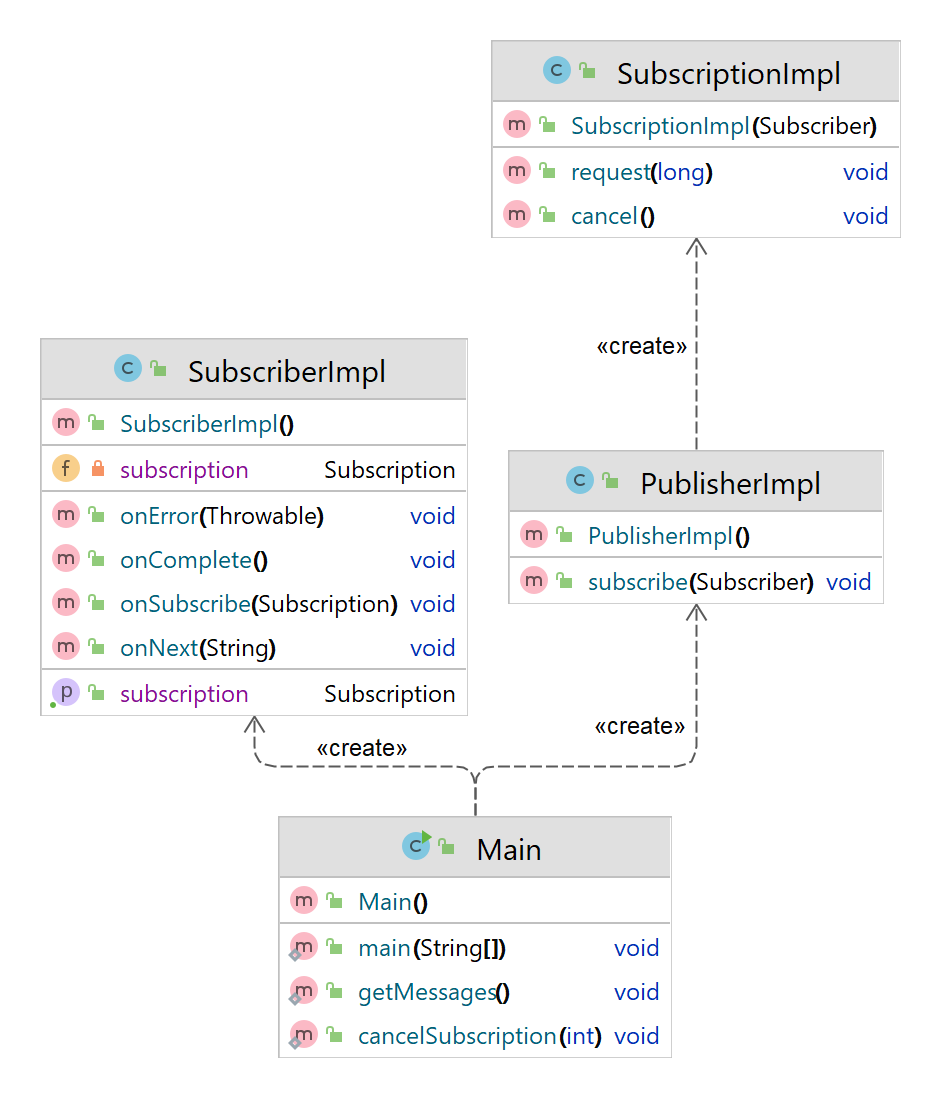Define an interface for creating an object, but let subclasses decide which class to instantiate. Factory Method lets a class defer instantiation to subclasses.
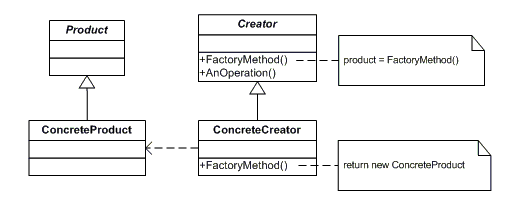
- In Factory Pattern we have Product(Abstract), ConcreteProduct and Creator(Abstract), ConcreteCreator
- ConcreteCreator would create ConcreteProduct by implementing abstract factory method of Creator which has Product return type
- Incase if there is any new Product to be added it fully supports Open Closed Principle(Open For Extension, Closed for Changes).
- Open for Extension – Adding new ConcreteProduct and ConcreateCreator class, Closed for Changes – No changes in anyother code unlike Simple factory or static factory method which requires change in Switchcase, enum (or) if case
- Closed for Changes – No changes in anyother code unlike Simple factory or static factory method which requires change in Switchcase, enum (or) if case
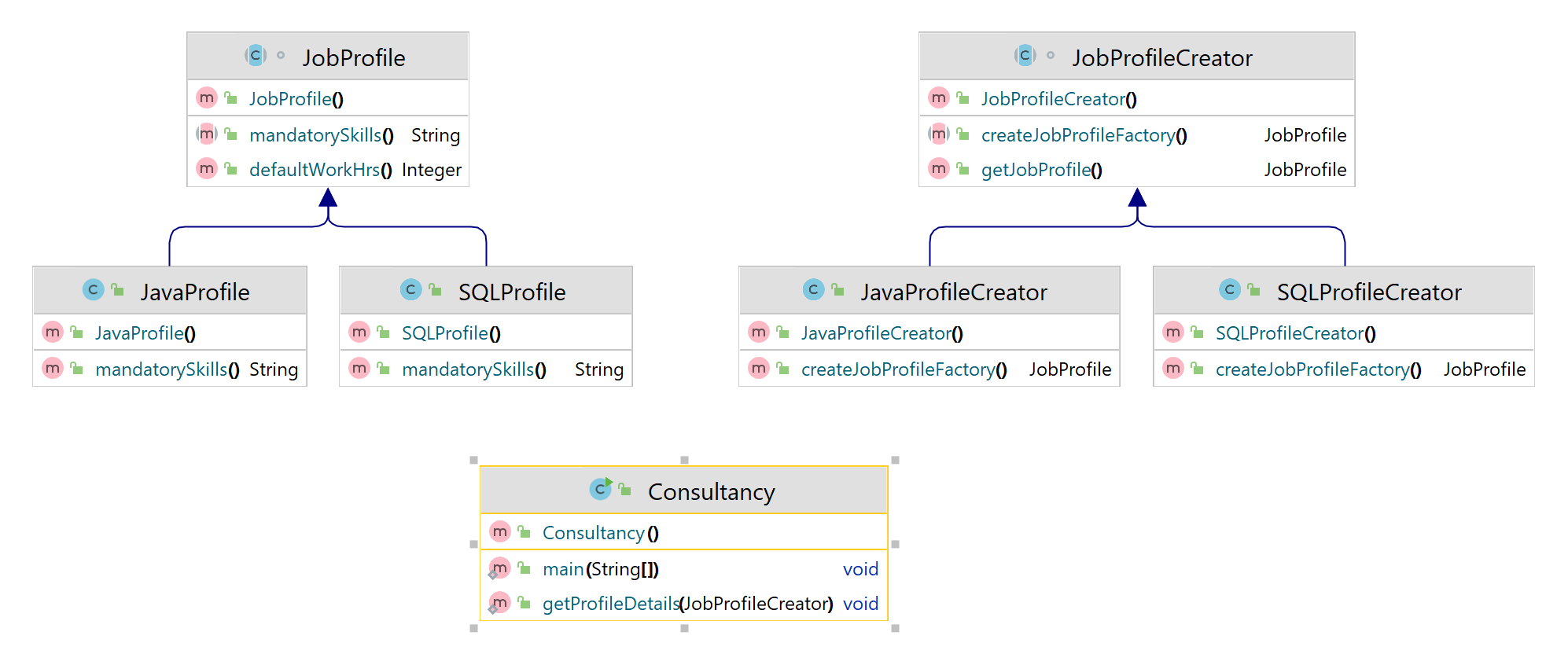
JobProfile.java
abstract class JobProfile {
public abstract String mandatorySkills();
public Integer defaultWorkHrs(){
return 8;
}
}
JavaProfile.java
public class JavaProfile extends JobProfile{
@Override
public String mandatorySkills() {
return "Java, Springboot, Microservices";
}
}
SQLProfile.java
public class SQLProfile extends JobProfile{
@Override
public String mandatorySkills() {
return "Cosmos, MySQL, MSSQL";
}
}
JobProfileCreator.java
abstract class JobProfileCreator {
public JobProfile getJobProfile(){
JobProfile objJobProfile = createJobProfileFactory();
return objJobProfile;
}
public abstract JobProfile createJobProfileFactory();
}
JavaProfileCreator.java
public class JavaProfileCreator extends JobProfileCreator {
@Override
public JobProfile createJobProfileFactory() {
return new JavaProfile();
}
}
SQLProfileCreator.java
public class SQLProfileCreator extends JobProfileCreator {
@Override
public JobProfile createJobProfileFactory() {
return new SQLProfile();
}
}
Consultancy.java
public class Consultancy {
public static void main(String[] args) {
getProfileDetails(new JavaProfileCreator());
}
public static void getProfileDetails(JobProfileCreator jobProfileCreator){
JobProfile objJobProfile = jobProfileCreator.getJobProfile();
System.out.println(objJobProfile.mandatorySkills() + " with "+ objJobProfile.defaultWorkHrs() + "hrs of Work");
}
}
Output
Java, Springboot, Microservices with 8hrs of Work
